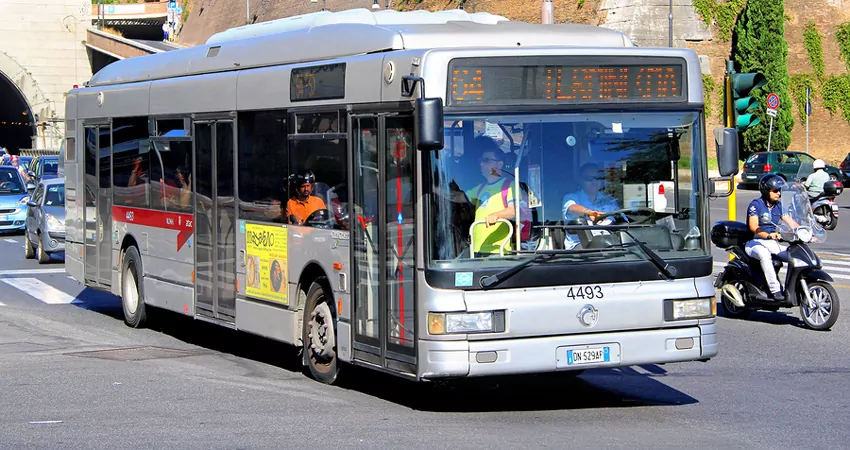When the Massachusetts Bay Transportation Authority (MBTA) decided it was time for new buses they announced they’d be buying hybrid and CNG-powered vehicles. Bus operators, like the MBTA, are big fans of CNG even though it has some specialized handling requirements. That’s why incorporating CNG-fueled vehicles into a fleet creates some issues for maintenance and repair facilities.
About CNG
CNG stands for compressed natural gas. That’s the same fuel many people use for cooking and heating. It’s inexpensive and it’s produced domestically. Like every hydrocarbon product, it will burn if mixed with air in the right proportions. Fortunately though, as it’s lighter than air it tends to disperse quickly rather than pooling in low areas where it can cause an explosion or asphyxiation risk.
A “Greener,” Healthier Fuel
CNG usually costs less than gasoline or diesel, giving bus fleet operators an immediate saving. It also burns cleaner so emissions, especially of ozone-forming chemicals, are lower. That’s important in densely-populated urban areas where ozone causes a variety of respiratory problems.
Implications for Bus Operators
For use in motor vehicles the natural gas is stored in thick-walled tanks at pressures of more than 3,000 psi. This reduces its volume to where the tanks can go into buses, (and some other vehicles.) Inevitably, there is a risk of tank depressurization, particularly when maintenance work is performed.
There are three types of location to consider: depots or garages where CNG vehicles are parked or stored, minor repair facilities, and major repair facilities.
- Depots or garages. The risk is of minor leaks. While natural gas rises and is easily blown away, it can be trapped under low roofs or even under vehicles. As this can create explosion or asphyxiation risks, facility operators should be aware of and follow relevant codes addressing minimum ventilation requirements.
- Minor repair facilities. These are places where small maintenance tasks like oil changes are performed. As no hot work is performed and fuel systems are not opened-up, the risk of leak is low. However, appropriate codes should be followed and gas detection equipment used.
- Major repair facilities. These are places where hot work is carried out on engines, fuel and exhaust systems. At times it may be necessary to open up fuel lines and leaks are a significant hazard. Relevant codes must be followed and gas detection equipment employed.
Leak Protection Equipment
Given that preventing problems is important, operators of facilities where CNG is used should consider deploying excess flow valves (EFV’s.) When incorporated into fuel lines, an EFV allows normal flows, but rapidly closes-off the pipe in the event of breakage or sudden disconnection.
ChemTec is a leading EFV manufacturer and can advise on appropriate devices for all kinds of hazardous fluids, including CNG. For further information, contact ChemTec by phone or email.
